Thursday Breaking News: Aave Launches New Liquidity Platform
Last edited: Jan 7, 2022
Aave has launched a new liquidity pool service, named Aave Arc, and it already has more than 30 institutions on board. Among these institutions are Fireblocks, lending platform Celsius, CoinShares, and Anubi Capital.
The significant difference between Aave Arc and other existing liquidity pools in established DeFi protocols is that unlike other offerings on the market, Aave Arc requires all market participants to abide by anti-money laundering (AML) and know-your-customer (KYC) regulations.
Since Aave is not a regulated entity, it has to process AML and KYC through a third party. This is where the partnership with Fireblocks comes in; Fireblocks will act as a whitelisting agent on Aave Arc, processing the AML and KYC documentations from all participants on the market so that they are permissioned to be a supplier, borrower, or liquidator on the platform.
Fireblocks’ announcement on its role in the launch of Aave Arc points to the largely unregulated nature of DeFi liquidity pools, and how Aave Arc solves these problems:
“Providing a separate deployment of the Aave V2 liquidity pool for institutional players, the protocol enables whitelisted institutions to securely participate in DeFi as liquidity suppliers and borrowers. Now, Fireblocks users who volunteer to become whitelisted by undergoing a KYC process can access Aave while benefiting from Fireblocks’ industry-leading security.
While approximately $255.9 billion is currently locked in DeFi, the market has largely remained untapped by institutions due to a lack of support for enterprise-grade risk management and KYC/AML requirements.
According to blockchain research firm Blockdata, enabling institutional access to DeFi could unlock a trillion-dollar opportunity over the next half decade. Aave Arc looks to usher in this paradigm shift by unlocking secure and compliant DeFi access for financial institutions across the globe.
In general, permissioned protocols like Aave Arc can offer the decentralization benefits of DeFi, while allowing only permissioning (whitelisting) to be more centralized for KYC/AML purposes.”
By integrating institutions into the DeFi space, who previously may have reservations about the legitimacy of DeFi protocols due to the unregulated nature of the industry, we could see another boom in the total value locked (TVL) of DeFi protocols.
Though Aave is currently not available for trading on BTCC, Uniswap is one of the largest DeFi protocols in the crypto space, and investors who believe DeFi is in for another year of exponential growth should keep an eye on how Uniswap plans to integrate and acquire more users to its many decentralized financial services and products.
Follow BTCC.com for more news and analysis like this article to help inform your investment decisions.
